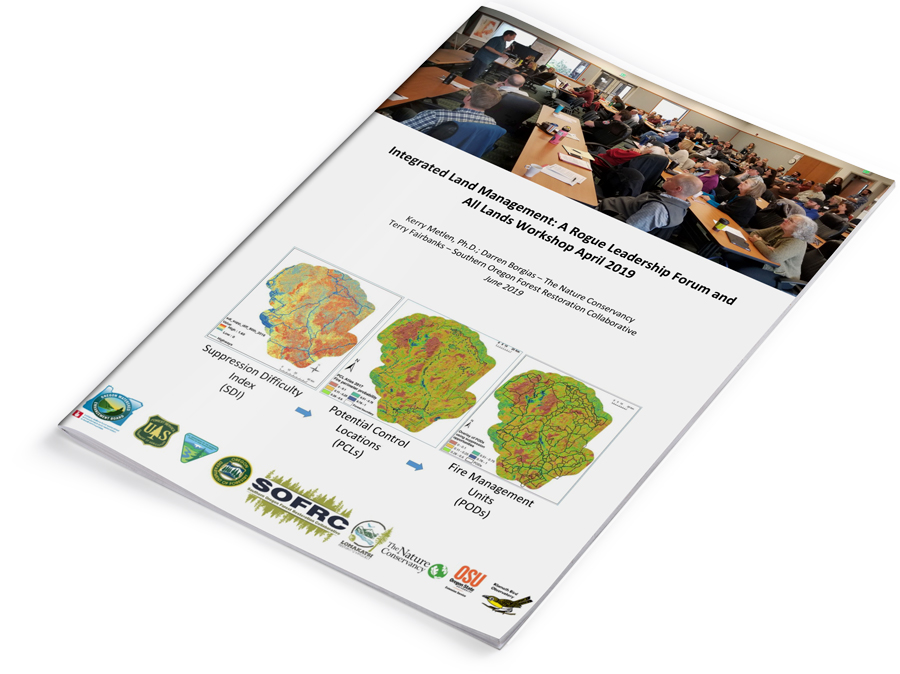Integrated Land Management: 2019 Rogue Leadership Forum
Unprecedented fire and smoke impacts across Jackson, Josephine, and Curry Counties have galvanized public and political will to address fire issues. In June 2019, our partners with the Southern Oregon Forest Restoration Collaborative (SOFRC) responded by hosting a workshop focusing on needed proactive fuel treatments and advanced wildfire planning. These elements are considered critical for achieving the three central objectives of the National Cohesive Wildland Fire Management Strategy: fire-adapted communities, safe and effective wildfire response, and resilient landscapes.
Participation was robust and broad-based, with 146 participants in the leadership forum and 104 in the All Lands Workshops. A broad base of elected officials participated in the leadership forum, including commissioners from Jackson, Josephine, and Curry counties and elected officials and staff from tribes, city government, and state and federal legislatures. Leaders from the local federal land management agencies, Rogue Valley Fire Chiefs, rural fire districts, and organizations representing conservation, business, industry, climate change, and social justice, as well as others, also participated.
Strong participation by the tribes, coordinated by Lomakatsi Restoration Project, produced a historic tribal influence at the leadership forum and highlighted the significant potential for tribes and land managers to co-invest and co-manage in work on ancestral tribal lands.
Tribal land management professionals and eco-cultural restoration practitioners shared their knowledge of living with and utilizing fire as a place-based ecological management tool. Throughout both events, indigenous fire practices and the Traditional Ecological Knowledge of the tribes were honored, including the careful application of fire to benefit wildlife habitat, promote food security by ensuring a diverse and productive landscape, and decrease disease and hazardous fuels.
The strength of broad coalition co-investing toward shared objectives was a key theme throughout the workshop. Presenters emphasized how climate change makes the magnitude of land management challenges more extreme. These events, convened by the SOFRC and Rogue Forest Partners, represent the strong appetite, shared across broad partner groups, for actively engaging in proactive wildfire planning, forest thinning, and controlled burning to ensure a better future for people and forests of the Rogue Basin.

